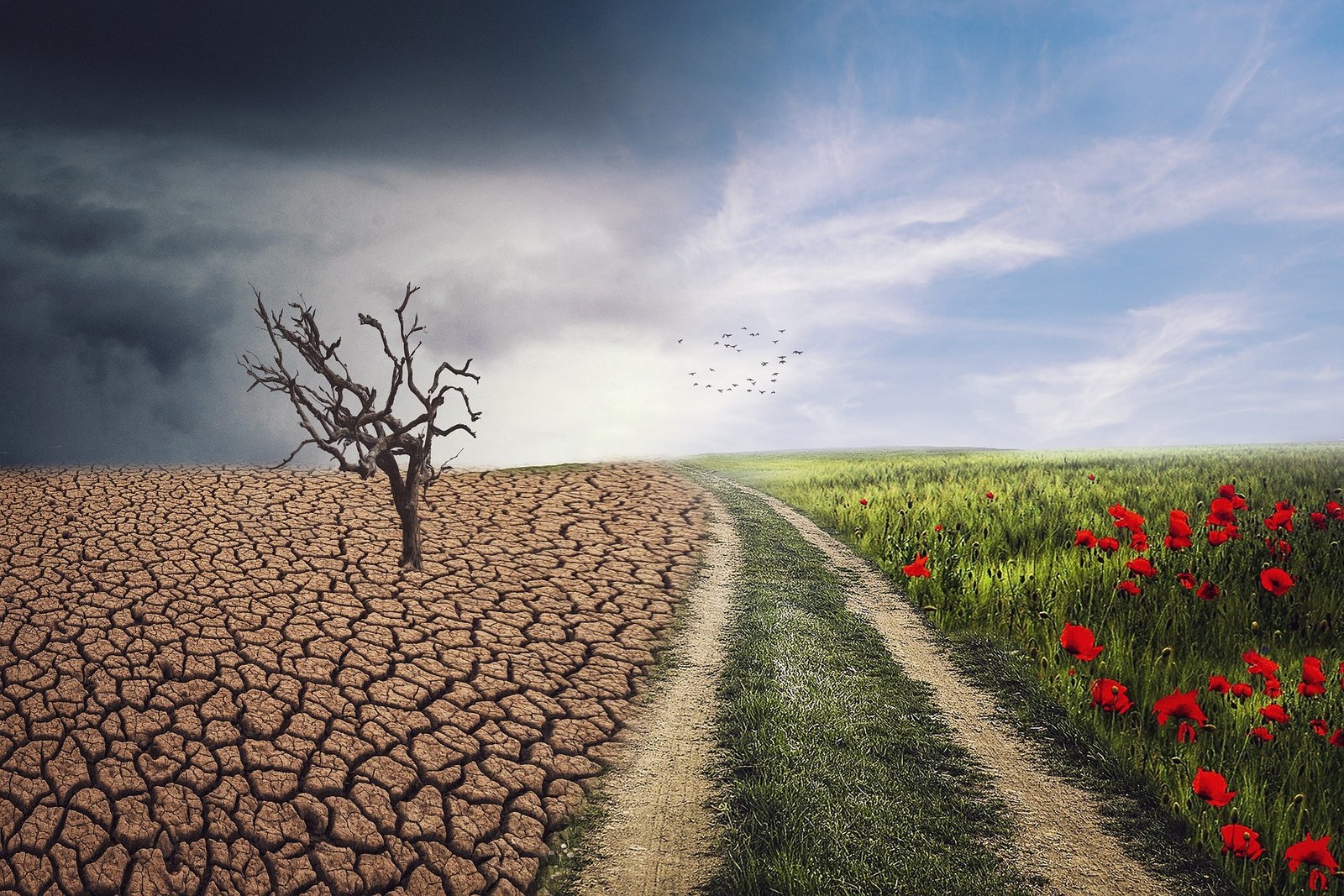The impacts of climate change on public health are now becoming more obvious, due to human related increase in planetary temperatures.This increase reflects health issues in addition to environmental concerns. Attributing a variety of health related challenges of this century to climate change, World Health Organization termed it the most significant health problem. The focus of this article is on the association between health and climate change, drawing attention on the latest researches and figures that accentuate this pressing issue.
The Health Impacts of Climate Change

Climate change affects health through a variety of pathways, including:
1. Air Quality
The formation of ground-level ozone and increased particulate matter are influenced by elevated temperature and shifts in climate. As stated in a research done in 2021 by Environmental Research Letters, air pollution causes over 4.2 million deaths every year most (probably) linked to climate change. Children and the aged form the majority vulnerable groups who are at higher risk of respiratory disorders e.g. asthma.
2. Extreme Weather Events
The increase in extreme weather events has led to escalated frequency and severity. By 2030-2050, the World Health Organization predicts that climate-related malnutrition, vector-borne diseases and heat stress could lead to over 250 thousand extra deaths annually parentheses World Health Organization). Urban heat islands can intensify the heatwave effect causing much higher death tolls from heat in cities according to a study published in Nature Climate Change in 2022 (NCCI 2022).
3. Vector-Borne Diseases
The Center for Disease Control says that there’s been an alarming increase in diseases such as Zika fever, Lyme Disease and West Nile virus because changes have been taken place on the environments of pathogens. For that reason, mosquitoes and ticks are moving to new places where they were not known to breed before. With changing climate patterns, these vectors also change their zones of existence. A research done recently by Journal of Infectious Diseases showed that some areas without any report of malaria before could now start having some cases due to increase in temperatures. This implies with changes in our weather conditions we might now become more vulnerable even in places which we thought were safe before.
4. Food and Water Security
Evolving weather greatly endangers agricultural efficiency thereby causing starvation as well as undernutrition. By 2022, a report from Intergovernmental Panel on Climate Change (IPCC) hinted that certain areas might suffer 30% reduction in crop yields by 2050 due to changing climatic conditions. Moreover dehydration leading to severe health issues like spread of waterborne illnesses are attributable to drought-induced water scarcity. Research published in *The Lancet* (2023) establishes that lack of safe drinking water causes the deaths of over 2 million individuals each year, mainly children.
Mental Health Implications
The psychological effects of climate change are becoming increasingly recognized. According to a study that was published in 2022 in The American Journal of Psychiatry, anxiety, depression, and post-traumatic stress disorder (PTSD) can be caused by natural calamities, evacuations, and continuous uncertainty emerging out of its erratic state of distress. The research found out that in areas untouched by disaster, people face only half of the mental challenges that their counterparts do after they have gone through a weather related catastrophe.
Vulnerable Populations
Various groups are negatively affected by climate change, particularly regarding health. Low-income populations, including indigenous people and those with chronic diseases, face higher risks due to inadequate resources and limited access to healthcare facilities. For instance, in north-eastern America industrial emissions and coal-fired power plants lead to poor air quality. It’s essential to note these groups while coming up with ways of fighting against environmental depletion.
Recent Initiatives and Research

Governments and organizations worldwide are recognizing the intersection of climate change and health, leading to new initiatives and research:
1. The WHO’s Global Action Plan
In 2021, the WHO introduced the Global Action Plan on Climate Change and Health to foster resilient healthcare systems against climate-induced illness. This plan emphasizes managing air quality, promoting mental health, and improving diet quality.
2. Research on Adaptation Strategies
Recent studies are exploring effective adaptation strategies to mitigate health impacts. A 2023 paper in Global Environmental Change highlighted the effectiveness of urban green spaces in reducing heat-related illnesses. Increasing vegetation can lower temperatures and improve air quality, offering a dual benefit for public health.
3. Community-Led Initiatives
Community-based efforts in susceptible areas contribute in terms of enlightening the population, enhancing neighborhood amenities, as well as influencing policy formulation In relation to health effects of global warming, grassroots organizations are also significant. An example is the urban farming projects that do not only aid in curbing food shortage but also care for human sanity by enabling communities to be together.
The Path Forward
Addressing the health impacts of climate change requires a multi-faceted approach:
- Integrating Health into Climate Policies: Governments must consider health implications in climate action plans. Policies that promote clean energy, sustainable agriculture, and urban planning should prioritize health outcomes.
- Research and Surveillance: Continuous research on climate change and health is essential for understanding and mitigating risks. This includes monitoring disease patterns and assessing the effectiveness of adaptation strategies.
- Public Awareness and Education: Increasing awareness about the health impacts of climate change can empower communities to take action. Educational campaigns can encourage sustainable practices and promote resilience.
- Equity and Access: Ensuring equitable access to resources and healthcare is critical. Health interventions and climate adaptation strategies must prioritize vulnerable populations.
Conclusion

It is hard to understand the relationship between climate change and health; it is actually very complicated. But if we check some recent studies and statistics would realize that there is need for intervention on both these fronts at once. However, moving forward requires that we acknowledge an intrinsic connection between safeguarding public well-being and fighting global warming at the same time. There is no better moment than now because the lives of people living in the world today as well as those who will come after us depend on it.

